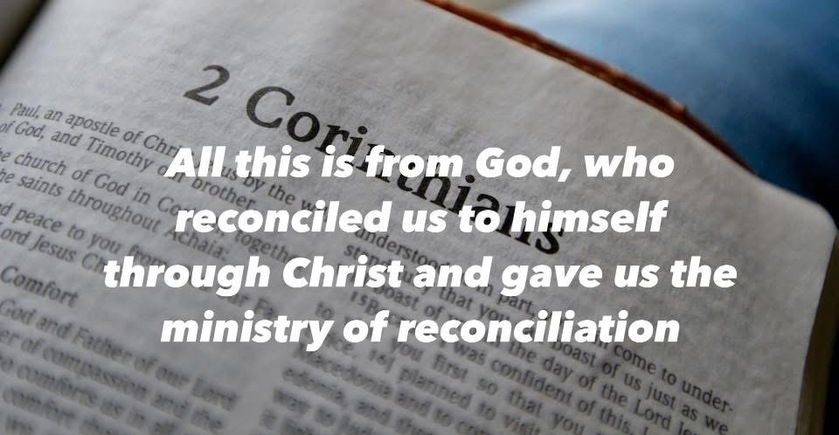Pressing On Through Divine Detours: Faith, Guidance, and Restoration in Paul’s Journey
Acts 16:1-5
"Paul came also to Derbe and to Lystra. A disciple was there, named Timothy, the son of a Jewish woman who was a believer, but his father was a Greek. He was well spoken of by the brothers at Lystra and Iconium. Paul wanted Timothy to accompany him, and he took him and circumcised him because of the Jews who were in those places, for they all knew that his father was a Greek. As they went on their way through the cities, they delivered to them for observance the decisions that had been reached by the apostles and elders who were in Jerusalem. So the churches were strengthened in the faith, and they increased in numbers daily."
Here we are, five years after Paul established this church community in Lystra. And this passage marks the beginning of Paul’s second missionary journey, where he recruits a young disciple named Timothy and continues to build up the early churches. He traveled through regions like Derbe and Lystra in modern-day Turkey.
He mentored Timothy, the son of a believing Jewish woman (Eunice) and a Greek father, who was a disciple well-regarded by the local believers in Lystra and Iconium. Despite the recent council ruling that circumcision wasn’t required for salvation, Paul circumcised Timothy to remove potential barriers when ministering to Jews, who knew of his Greek background. A strategic choice rooted in love. Paul became "all things to all people" (1 Corinthians 9:22) to win them for Christ. Paul shows a balanced approach between holding firm to gospel freedom and adapting culturally to avoid unnecessary offense. As the team traveled, they shared the Jerusalem Council’s decisions, which emphasized grace over law for Gentiles. This reinforced Christian liberty and protected against the Judaizing influencers.
Reflection:
Keep the peace, that was Paul's goal. In our diverse world, we too might need to set aside preferences to reach people from different backgrounds, always without compromising core truths. Don't sweat the minors, major on the majors but don't major on the minors.
And so, the ministry is thriving and emerging, but it's interesting to note that Paul later in his epistle writes about these people. Paul writes to the Galatians about foolish Christians who started in the spirit yet try to perfect themselves in the flesh. This rebuke in Galatians 3:3 highlights the danger of reverting to legalistic practices for spiritual completion, after beginning by faith in the Spirit. The distinction lies in our motives. Our freedom in Christ allows for cultural flexibility without compromising the core message of grace, but Paul deemed some to be foolish in their motives. In doing so, Paul is teaching that true spiritual growth comes from relying on the Spirit, not fleshly efforts. He's teaching them to avoid the folly of adding human requirements to God’s grace.
Acts 16:6-7
"And they went through the region of Phrygia and Galatia, having been forbidden by the Holy Spirit to speak the word in Asia. And when they had come up to Mysia, they attempted to go into Bithynia, but the Spirit of Jesus did not allow them."
After recruiting Timothy in Lystra, the team; now including Paul, Silas, and Timothy, pressed onward with plans to spread the gospel further. Where divine intervention redirects the missionaries’ path. The Holy Spirit is actively preventing them from entering Asia (likely the province including Ephesus) and then Bithynia, a region north of their position. How? How is the Spirit acting in this way? No one knows for sure.
This restraint wasn’t punitive but strategic, redirecting them toward Troas and eventually Macedonia via a clear vision (Acts 16:9-10), emphasizing God’s sovereignty in the mission. Possibly due to an illness, maybe having to do with Paul's "thorn" in the flesh. And maybe this requires help from a physician, possibly Luke, the author of this book. For instance, Paul mentions preaching in Galatia due to a bodily ailment (Galatians 4:13-14), which detained him there and could have been the same "thorn."
Whatever the cause, the book of Acts suggests it's a matter of spiritual warfare and divine guidance. After this Luke, the "beloved physician" (Colossians 4:14), likely joined the group, as indicated by the shift to "we" in the narrative (Acts 16:10), possibly to provide medical care for Paul’s condition. While not definitive, this view illustrates how God can use even personal afflictions as part of His sovereign guidance.
Application For Today:
We may encounter "closed doors" in life, our plans thwarted despite our best efforts. Think of a recent "closed door" in your life, could it have been the Holy Spirit’s guidance, perhaps through circumstances like health issues? What does your faith say about these things. Are you going to face your fear with faith, or are you going to face your faith with fear?
Like Paul, we can learn to discern the Spirit’s voice through prayer, Scripture, and wise counsel, viewing hindrances as redirections toward greater opportunities. That's living your faith by facing your fears in God's strength, not your own. Even challenges like illness can be instruments of God’s will, reminding us to trust His sovereignty.
As Paul later affirmed in Philippians 4:13,
"I can do all things through Christ who strengthens me."
This verse, written amid his own trials, reminds us that Christ’s power enables us to endure and thrive, even when paths are blocked, turning potential fears into opportunities for deeper faith.
Think about Job, you know, the guy they wrote the book of Job about. You know what's interesting about him, he faced a multitude of trials and tribulations. He faced many fears and challenges coming up against his faith. Nothing seemed to reach him, friends, family, nothing cut through his gloomy mood. And probably for good reason, after all his life got very problematic. But the problem with Job is, he never read the book of Job. He lived it in real-time. And it's too bad he couldn't have just bypassed all those chapters of gloom and doom and jumped ahead to his revelations in The Lord. It's a shame he couldn't have just experienced one of the key verses from the Book of Job that reveals his spiritual awakening and revelation. Where he moves from merely hearing about God to a profound, personal encounter leading to humility and repentance.
This verse is Job 42:5-6:
"My ears had heard of you but now my eyes have seen you. Therefore I despise myself and repent in dust and ashes."
This marks the climax of Job’s journey through fear and faith, as he acknowledges God’s sovereignty after divine speeches humble him, shifting from despair to deeper faith and restoration. Job comes to terms with his life and all that's been hindering him. And what he discovered was that it was his faith that needed restoration most of all. God restored all those other things, and then some, but first his faith needed to be restored.
In what ways can you lean on Christ’s strength to face uncertainties with faith rather than fear, much like Job’s eventual restoration?
Paul said, "I press on…" As seen in Philippians 3:13-14, where Paul declares,
"Brothers and sisters, I do not consider myself yet to have taken hold of it. But one thing I do: Forgetting what is behind and straining toward what is ahead, I press on toward the goal to win the prize for which God has called me heavenward in Christ Jesus."
This mindset of pressing on, despite past setbacks or closed doors, echoes the resilience we see in Paul’s journey and Job’s story, focusing forward on God’s calling rather than dwelling on our trials.
Friends, our faith is a gift, not a burden. We should press on in joy, not fear. And yes, we should be consistent and seeking holiness in obedience. And yes, we shouldn't walk in the council of the wicked. But we must also remember that faith means we have God with us. We are not alone. And He's not stalking us looking to punish is. He's not lording over us and waiting for an opportunity to stomp us for stepping out of line. Yes, what a man sows he shall reap, but that's what he sowed, he sowed what he reaped. What God was doing while he was doing all those things was; mercy, grace, inspiration, instruction, sometimes closing a door, sometimes opening another, and most importantly, forgiveness.
This powerful reminder echoes the heart of the gospel: God’s pursuit of us is rooted in love, not condemnation. As Ephesians 2:8-9 declares,
"For by grace you have been saved through faith. And this is not your own doing; it is the gift of God, not a result of works, so that no one may boast."
Faith isn’t something we manufacture, it’s graciously given, empowering us to live freely in His presence. It frees us from the burden of self-reliance, inviting us into a relationship where God’s strength sustains us.
In a world full of fears and missteps, let’s embrace faith’s gift by pressing on with joy. When doors close or trials come, see them as God’s gracious redirection, not punishment. Obey in holiness, but rest in His forgiveness, He’s with you, extending mercy every step of the way.
Prayer:
Heavenly Father, thank You for guiding us through Your Spirit, even when it means changing our paths or using our weaknesses. Help us to recognize Your voice in convictions, prophecies, and circumstances, submitting our plans to Your perfect will. Strengthen us through Christ, so we can do all things in Your power, facing fears with unwavering faith, as we see in the lives of Paul and Job. Empower us to press on toward Your heavenly calling. Lead us into the opportunities You’ve prepared for us from the beginning.
In Jesus’ Holy name, Amen.




















